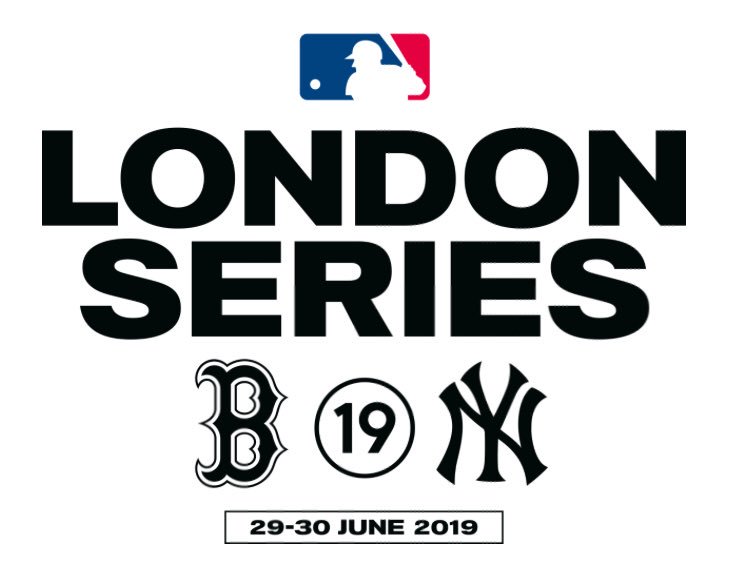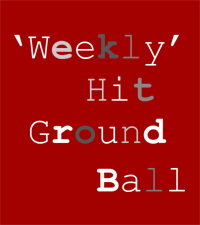As we head towards the Christmas period and the end of the year, it’s always a time to reflect on what’s happened over the past twelve months and what the new year may bring. Various bits of news last week made it a good time to do just that for baseball in Britain.
MLB London Series

Tickets went on sale last week, and quickly sold out, for the MLB London Series taking place at the London Stadium on 29-30 June 2019. Relatively high prices, frustrating online sales process and exploitation by re-sellers and touts were all sadly to be expected and left plenty of dedicated baseball fans ticket-less and disappointed.
The unfortunate truth is that the prices are precisely why MLB is coming to London ahead of other European cities. Although MLB will say the right things about growing the game, in truth if the primary focus was on the wider benefits of developing baseball through International Series events then their first foray into Europe may have been staged in Hoofddorp, Netherlands, a temporary venue in Rome, Italy, or in Regensburg, Germany instead.
They are coming to London, using a multi-purpose stadium with all the compromises that brings for playing field dimensions and viewing points, because that’s where the money is and where they’ll get the most publicity. That’s the compromise we have to accept for MLB deciding to bring games here. It’s a slightly cynical point of view, and no comfort to those who hoped to attend and found themselves priced-out, but is probably the reality.
That isn’t to take away from the potential benefits there will be for British baseball, just that this isn’t MLB’s goal and shouldn’t be expected to be. If the 2019 London Series, and the proposed follow-up in 2020, is to help grow the game on these shores then it’s up to us in the British baseball community to make that happen. How can we use the publicity of the Yankees and Red Sox coming to London to make more people aware of the baseball that’s already here?
It will need their support, of course, and primarily in respect of what they can achieve with media coverage. We’ve seen positive reports of BBC’s interest in broadcasting the two London games and that BT Sport are working to extend their TV deal. What we ideally need is some wider free-to-air coverage of MLB games for the 2019 season more generally, be that on TV or radio, and that’s a difficult problem to solve as we all know. We’ve not had any such coverage since the end of the BBC 5 Live Sports Extra show several years ago. The London Series at least gives broadcasters a reason to think about adding MLB rights to capitalise on some new-found wider interest.
Great Britain Baseball misses out on funding
The standing of baseball on these shores was shown by the announcement on Thursday that the Great Britain set-up was unsuccessful in their bid to receive money from the UK Sport Aspiration Fund.
The GB Women’s Fastpitch Team programme did receive an award of £62,500 at least, but the hope that baseball’s Olympic return for the 2020 Tokyo Games might at last end the long-running situation of our national programme receiving no such direct funding were dashed.
In the BSUK press release, GB Head Coach Liam Carroll was typically pragmatic about the development (“This is, however, a story with which we’re familiar”). Focus will shift to the London Series and any publicity and fund raising the GB set-up can achieve alongside MLB’s event. Even the ability to sell some GB merchandise around the stadium would be a benefit, so we’ll see how co-operative the MLB Office will be.
Next year will be an important one for the the senior national team as they are heading to Germany in September for the 2019 European Championships. GB finished ninth in the 2016 event, so we all know making the top five to qualify for the Africa/European Olympic qualifier will be a big challenge.
That was highlighted by the new Super 6 tournament staged for the first time by the Confederation of European Baseball this past September. Featuring the widely-recognised current leading nations – tournament winners the Netherlands, Italy, Germany, Spain, Belgium and the Czech Republic – it produced some very well-played baseball from what I saw via the online broadcasts. Co-operation between different national federations in Europe has long been a delicate process, yet staging events like the Super 6 is surely in the interests of all, pooling the best European teams for the highest standard of competition to further player development and to provide a great showcase for the sport.
The Great Britain baseball programme is working to get into that top group in future and the Under 23’s bronze-medal finish in the 2018 European Championship Qualifier shows what could be possible.
British teams in Europe
Easily overlooked alongside the London Series ticket launch was the BBF announcement on Monday that the 2018 National Baseball Championship finalists, the London Mets and Herts Falcons, had both accepted the CEB invitation to participate in the 2019 Federations Cup qualifiers. These are currently scheduled to take place in Moscow, Russia, in June just a couple of weeks before the MLB London Series.
It will be a debut European tour for the Herts Baseball Club, whilst the London Mets have been earning frequent flyer points representing British baseball in recent years. The Mets put up a good showing in Bulgaria in June, finishing third in their group with a 2-2 record, whilst the Southampton Mustangs went 1-3 in their group in Poland.
The State of the British Leagues?
Ahead of the publicity that baseball will receive in Britain in 2019, how would we sum up the state of the British leagues?
As an onlooker rather than a direct participant, things seem as frustratingly disjointed as they have been for a number of years. Nothing summed that up better (not really the word to use) than the situation at the start of the season when a dispute between the British Baseball Federation (BBF) and Baseball Softball UK resulted in the BBF launching a new website at
www.britishbaseballfederation.com.
Unsurprisingly that became a work in progress and core details such as fixtures, results and league tables were much harder to come by. We can see that the Long Eaton Storm (Single-A), East London Latin Boys (Double-A), Richmond Knights (Triple-A) and London Mets (NBL) all won their respective levels, but decent details about the seasons in each league are not so easy to find.
The biggest shame from a personal point of view is that the London Mets achieved a historic feat of capturing a record fifth top-tier title (the first team to do so in the modern era) during what is currently going to go down in the annals of British baseball history as a lost season. 2018 marked the first time in many years that even basic statistical details of the top-tier in British baseball have not been available to the national hub for baseball records at Project COBB (something that I of course declare a strong vested interest in).
Whilst developments such as the live streaming of national championship games on YouTube are greatly welcome, it’s incredibly disappointing that fixtures, results, league tables and stats are absent from the national federation’s website.
The BBF is still joined by several independent leagues in the British Baseball League, the South West Baseball League and Baseball Scotland that, from the outside at least, all seem to be fairing well. Having independent leagues is not necessarily a bad thing in an amateur sport relying on volunteers – if the independence gives an area better scope to tailor competitions that help the clubs grow and get more people playing regularly then so be it – but ideally in the context of constructive working relations between all where possible.
What’s clear is that 2019 is going to provide opportunities for British baseball to promote our sport and encourage more people to join the community, beyond taking a cursory interest in a couple of MLB games. Hopefully it will prove to be a positive year for us all that have an interest in British baseball.


